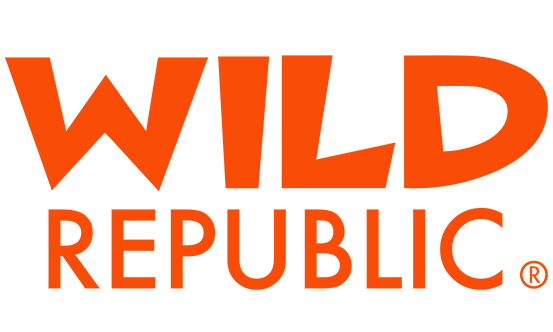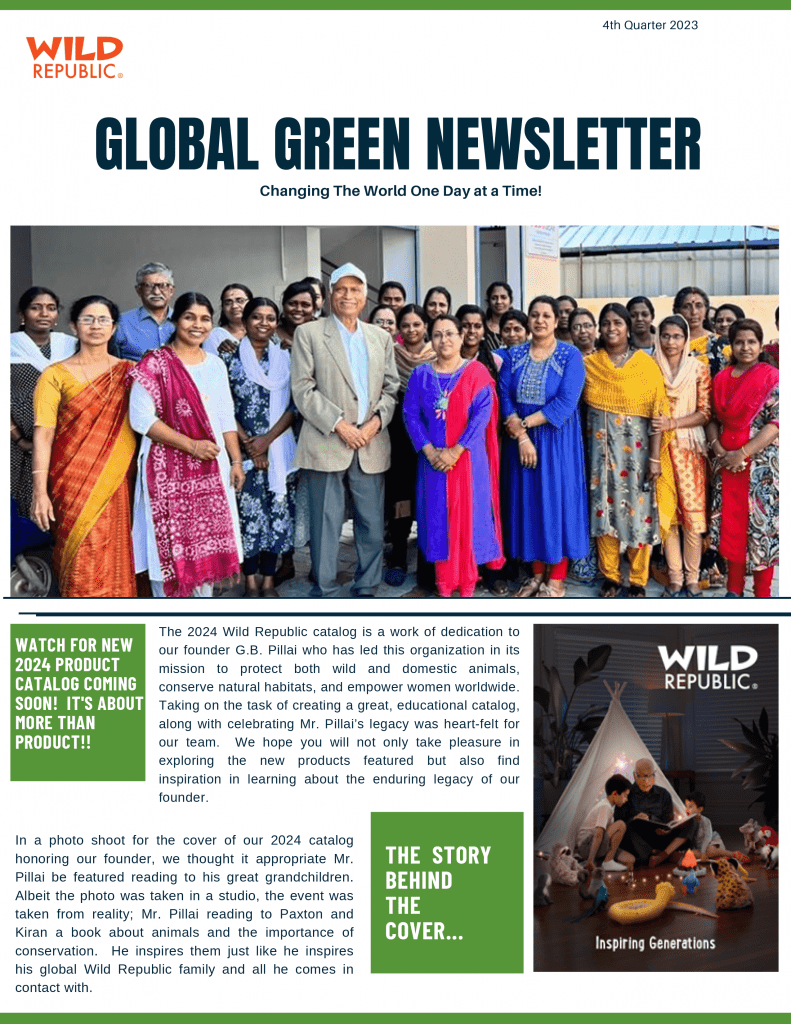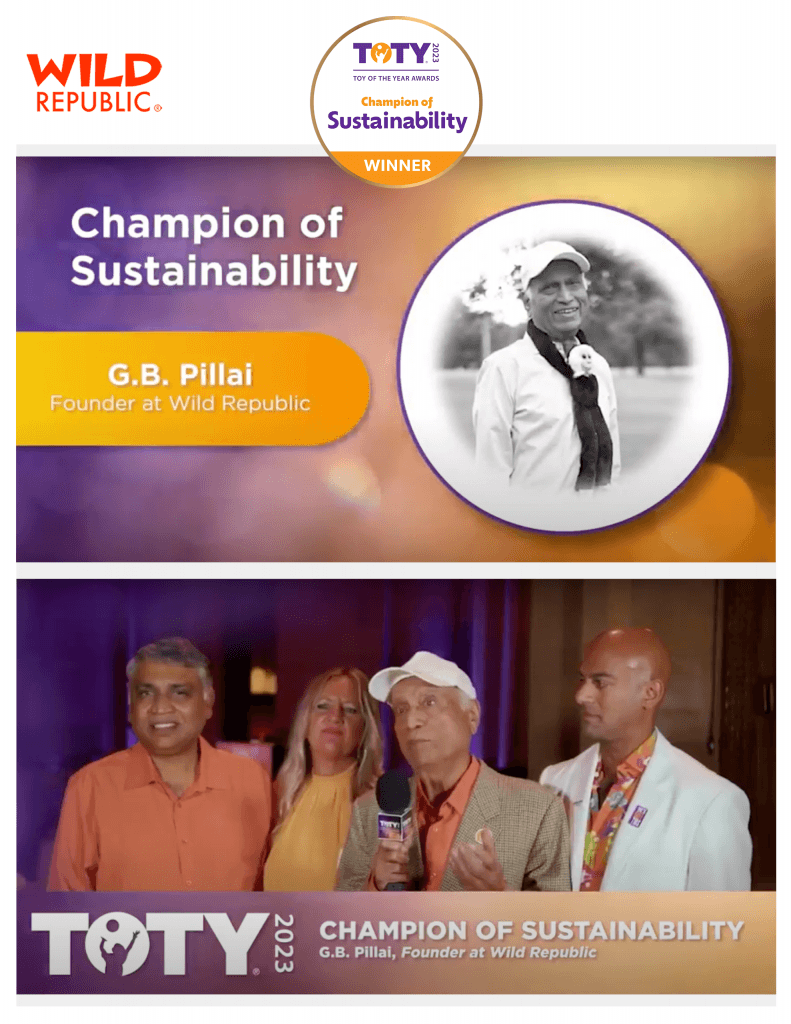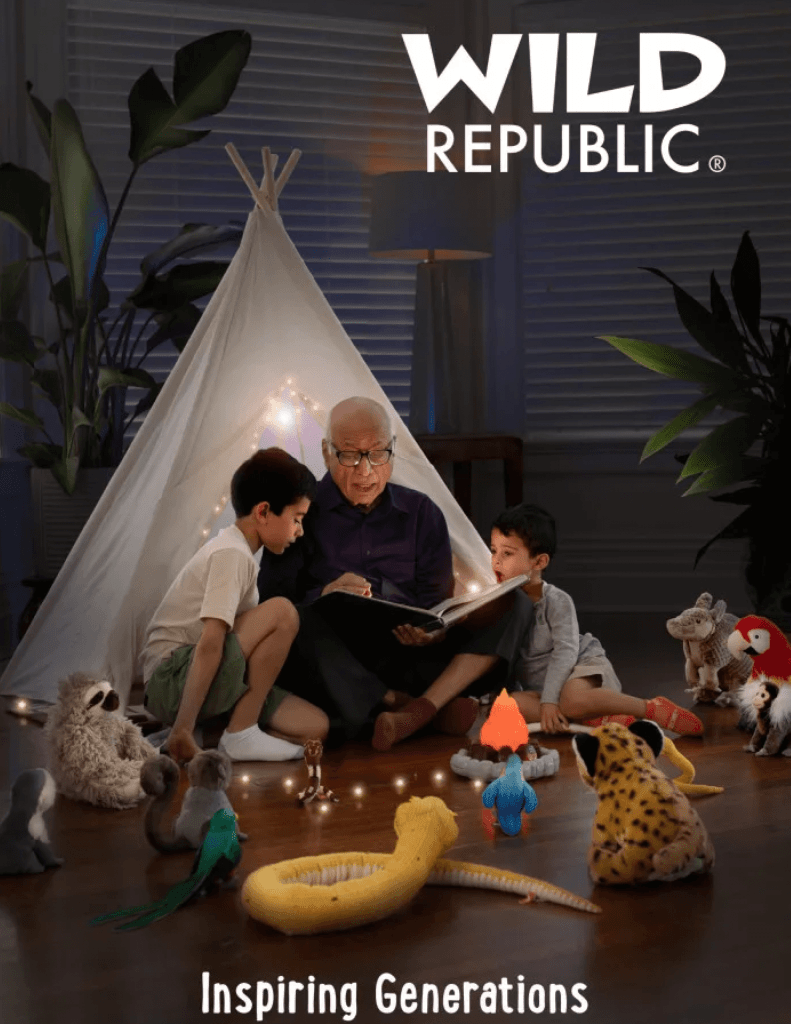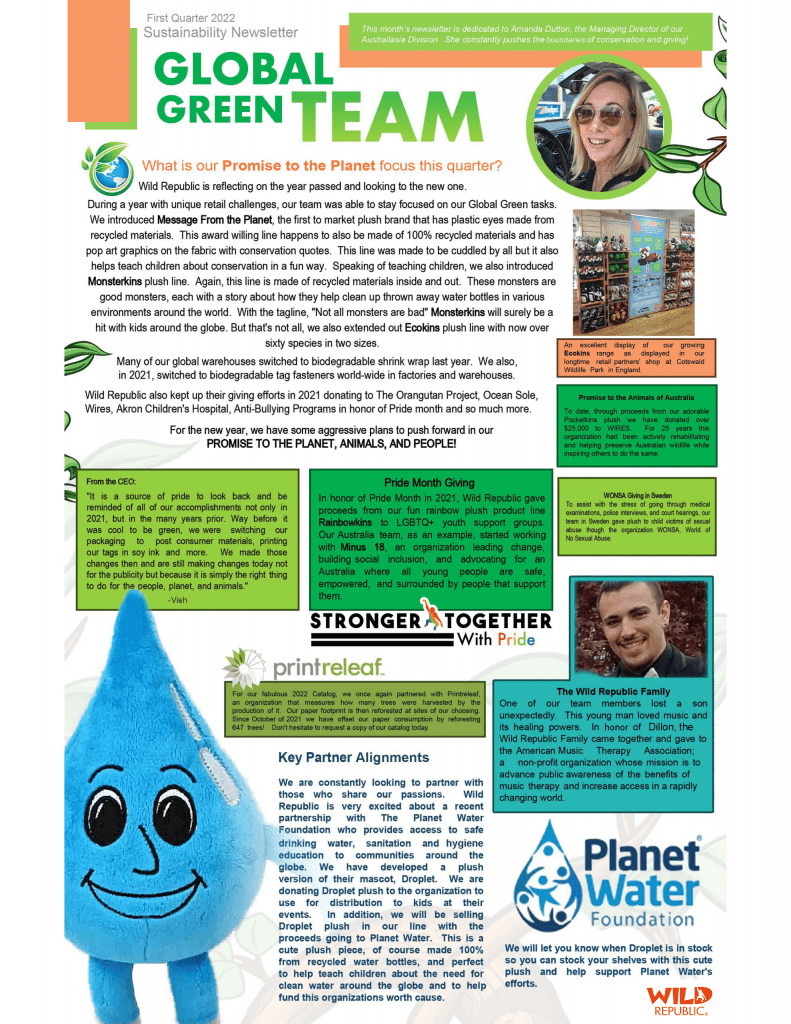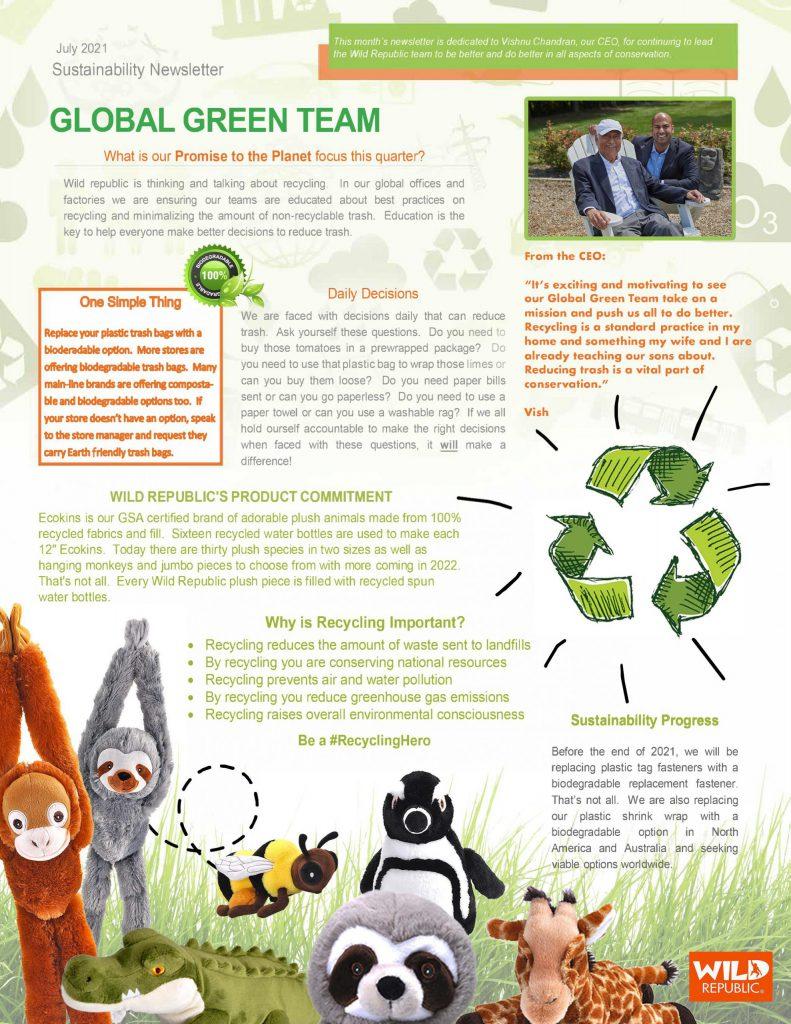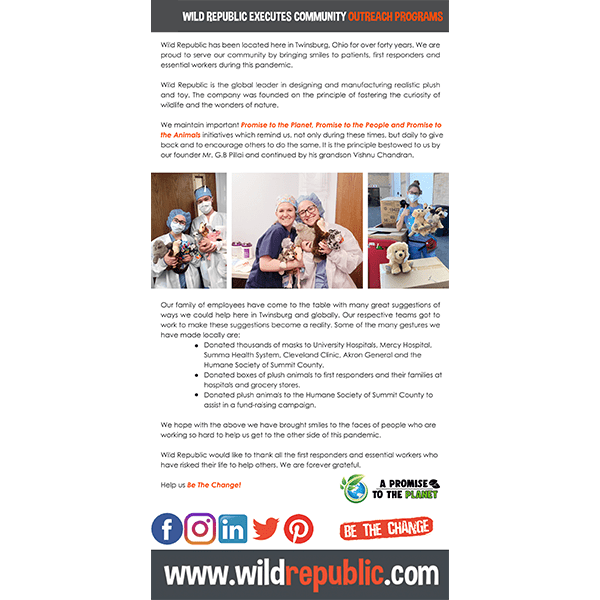Social Responsibility
As a company committed to nature and conservation, Wild Republic proactively strives to be as environmentally friendly and ethically responsible as possible. Our devotion to high quality and the strictest safety requirements has earned us a reputation for having exemplary products that exceed industry standards. We have begun converting our production processes to include reusable packaging, phthalate-free non-toxic materials, and sustainable resources.
We strive for not only producing better toys for children but also making a better world that is filled with love, hope and joy.
Home for Orphaned girls in India
Built in 1996 by G.B. and Kamala Pillai and continually supported by Wild Republic, Abhayabala is a home for girls from high-risk groups including those who have been the victim of domestic violence. Coming from grim and cheerless backgrounds, at this facility they have a secure home and people to care for them. There are four resident teachers and many others who help them with their studies and other activities.
Housing sixty residents at a time, these girls attend school, vocational training and more.
Thanks to Mr. and Mrs. Pillai, Abhayabala is their hope for a better tomorrow.


Rescuing Animals in India
Early on, when the Wild Republic was just getting started, our founders’ passion for animals led Mr. Pillai to start two programs that are ongoing today and another more recent program.
Panmana Asramam is a rescue and rehabilitation center for cows that are abandoned or destined for slaughterhouses. Here they are cared for with love and affection and allowed to live out their natural lives.
In 1996, Mr. Pillai stepped in to help a troop of monkeys at the Sastha Temple in Sasthamkotta, Kerala in India that were facing a food shortage which resulted in the monkeys stealing food from townspeople and children on their way to school. Learning of this, Mr. Pillai, without hesitation, created a trust fund that is still in existence today that ensures the perpetual feeding of those monkeys.
More recently, seeing the vast number of stray dogs in India, again Mr. Pillai sought to find a solution. In 2022 he began a dog rescue organization which currently houses and rehomes thirty dogs at a time. Mr. Pillai is making an annual investment to increase capacity to five hundred dogs by 2025.
Also, in 2022 Mr. Pillai began working to change animal cruelty laws in India to strengthen the protection of elephants. A well-defined plan has been created to work with the high court and politicians to change a law from 1860 on animal cruelty to a new law that will substantially increase the fines for offenders and provide a legal budget to assist in forcing those fines
Global Green Team
“We believe in connecting animals and humans with the wonder and beauty of nature.”
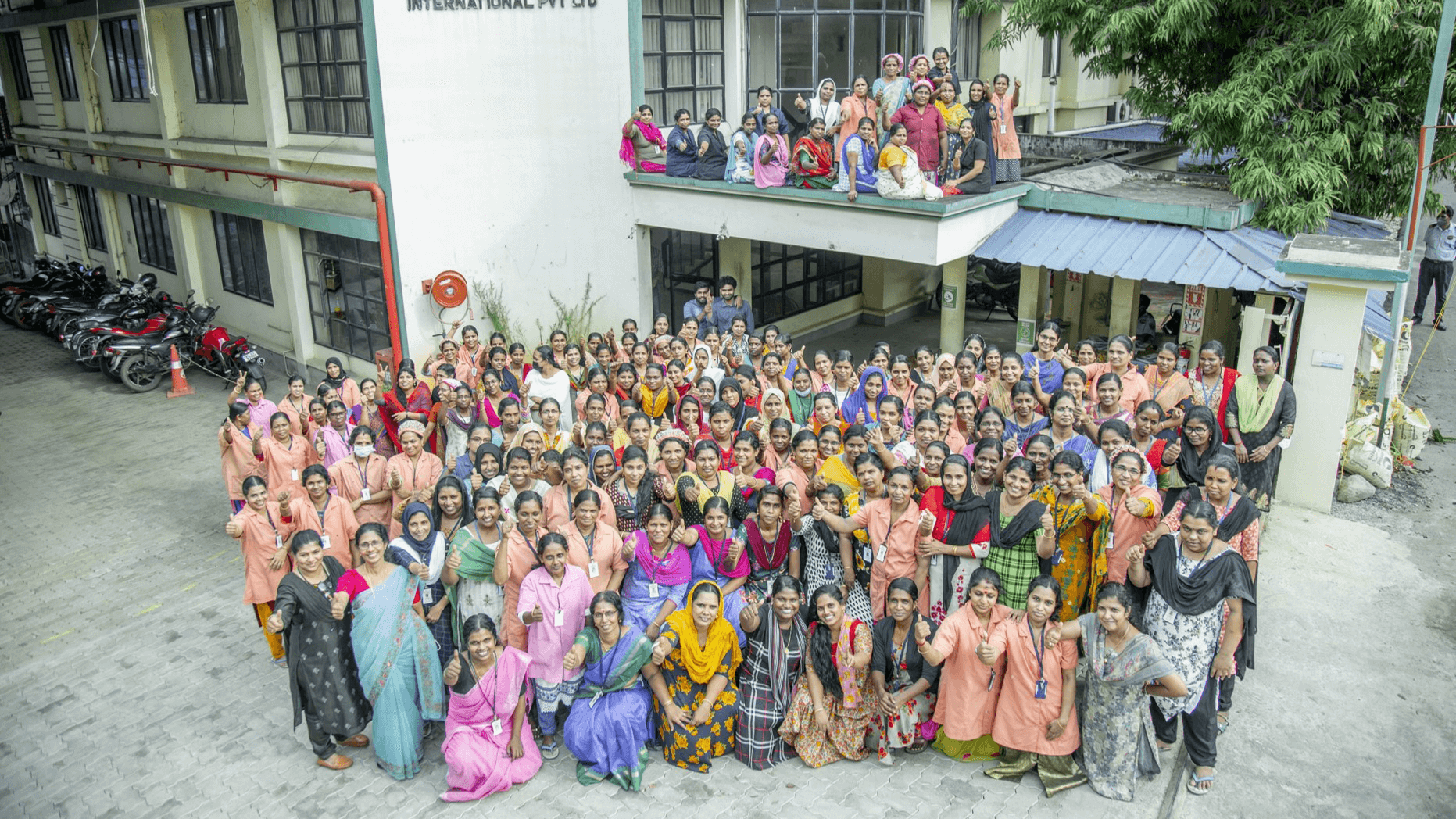
Empowering Women & Children in India
- Wild Republic Production (Bodygear) in India was opened by our founder G.B. Pillai and is now one of the largest plush toy manufacturers in the world.
- Factories were opened in improvised areas where women needed work.
- We are focused on not only employing women but also seeking out talents and putting these talented individuals in leadership positions.
- A tea and bread program was established in factories to provide proper nutrition to workers.
- Transportation is provided to help workers get to work.
- Future initiatives include assisting children of the women in the factories with scholarship opportunities for school and opening additional factories in villages in need.

